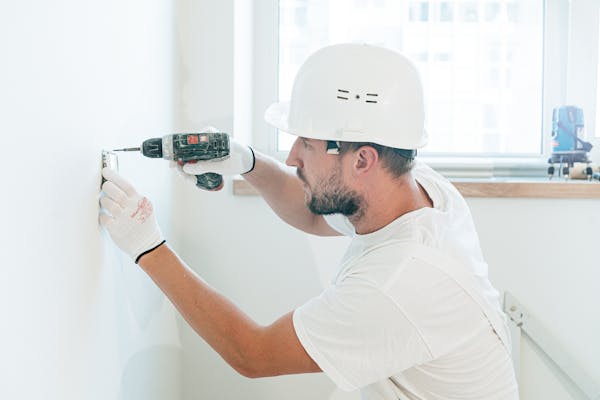Home improvement is a great way to add value to your property. However, there are some tasks that are better left to the professionals.
Performing some home repairs yourself can be cost effective. But some projects are so risky or complicated that it is best to call a professional. Click here for more info.
A well-maintained house is essential for both health and financial stability. Thankfully, most counties and cities offer home repair programs to help residents.
Do It Yourself (DIY)
As a homeowner, it’s important to know which projects you can take on yourself and when to call in the professionals. It’s also important to consider the time involved in DIY projects. If you are spending time on a project that could be used for something else, such as earning income to pay for the repairs, it may not be worth the effort.
Many people pursue DIY projects as a way to save money. This can be a great thing for frugal homeowners, but it’s important to remember that DIY is not always cost effective.

For example, making your own cleaners can be much cheaper than purchasing store-bought cleaning products. However, making your own cleaners can be more labor intensive than simply buying a bottle of generic product. Likewise, there are some home repair projects that require specialized skills and tools that can’t be easily replicated at home. For these, you should always seek the help of a professional.
Hire a Professional
Most homeowners can benefit from the services of a professional home repair service at some point. The challenge is finding the right one for you and your family. It requires a bit of intentional research. Remember, you’re letting someone into your most personal space and that should be taken seriously.
A good start is to find out whether the company or individual is licensed. Checking licensing is usually simple — the homeowner can look online or ask local building officials. It’s also a good idea to find out if the technician is insured. That’s usually a little more difficult, but many national companies have already vetted their technicians and may provide blanket insurance coverage.
It’s also helpful to know about government programs that may help with a particular type of home repair or renovation. For example, Habitat for Humanity offers home repair for low-income households in some areas. Other government programs offer assistance for certain types of repairs and improvements, such as energy-efficiency upgrades.
Get a Home Warranty
Home warranties reduce your out-of-pocket costs for common repairs for appliances and systems. However, it is important to know your limits and coverage before signing up.
A warranty company typically assigns a local service provider to come and repair or replace the item. They may charge a trade call fee, which operates like an insurance deductible.
If you are comfortable letting a home warranty company choose your service providers and want to limit the amount of money you need to set aside for maintenance, a home warranty is worth it. This is especially true if your appliances and systems are old.

Be sure to carefully consider a company’s track record and reviews, along with their coverage and cost. Some warranties have monthly fees, and others charge a service fee for each claim. The cost can add up if you have several claims over time. The coverage may also not be enough to cover the costs of a major system or appliance breakdown.
Save Money
New homeowners are often surprised by how costly home repairs can be. The good news is that savvy homeowners can prevent these expenses by being proactive about maintenance and saving up regularly.
For example, putting off plumbing issues can lead to leaks that result in costly damage or even structural changes to your home. Additionally, not updating or replacing outdated appliances can significantly increase your energy costs. It is also important to know when DIY projects are safe and when it makes more sense to hire a professional.
Engineering experts for the best writing services online note that while home improvement projects can increase your property value, they do not always add value to a home’s repair cost. The best way to save money on home repairs is to set aside a budget for it each year. Many experts recommend setting aside at least 1% of your home’s purchase price each year for this purpose.